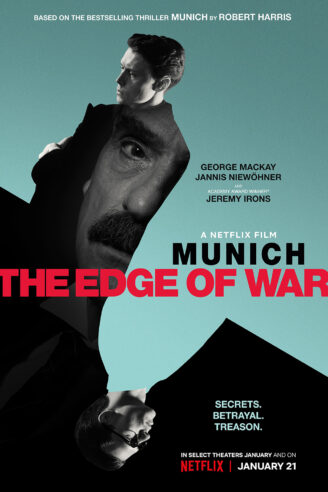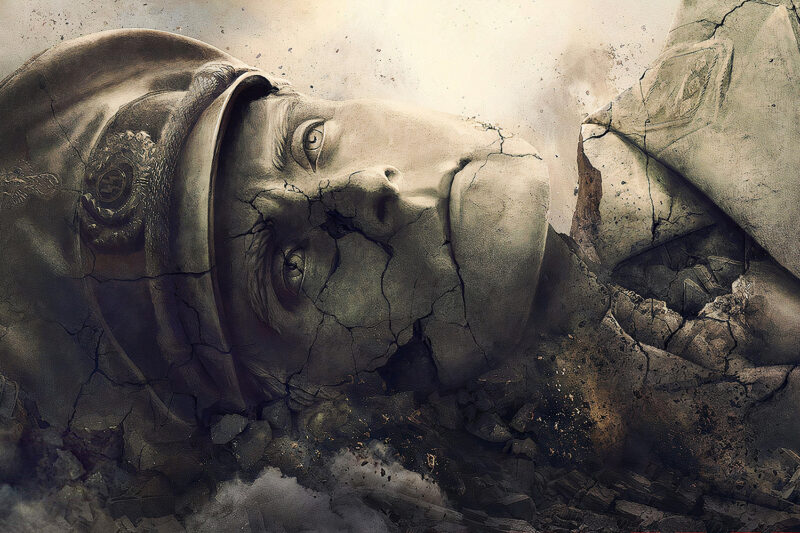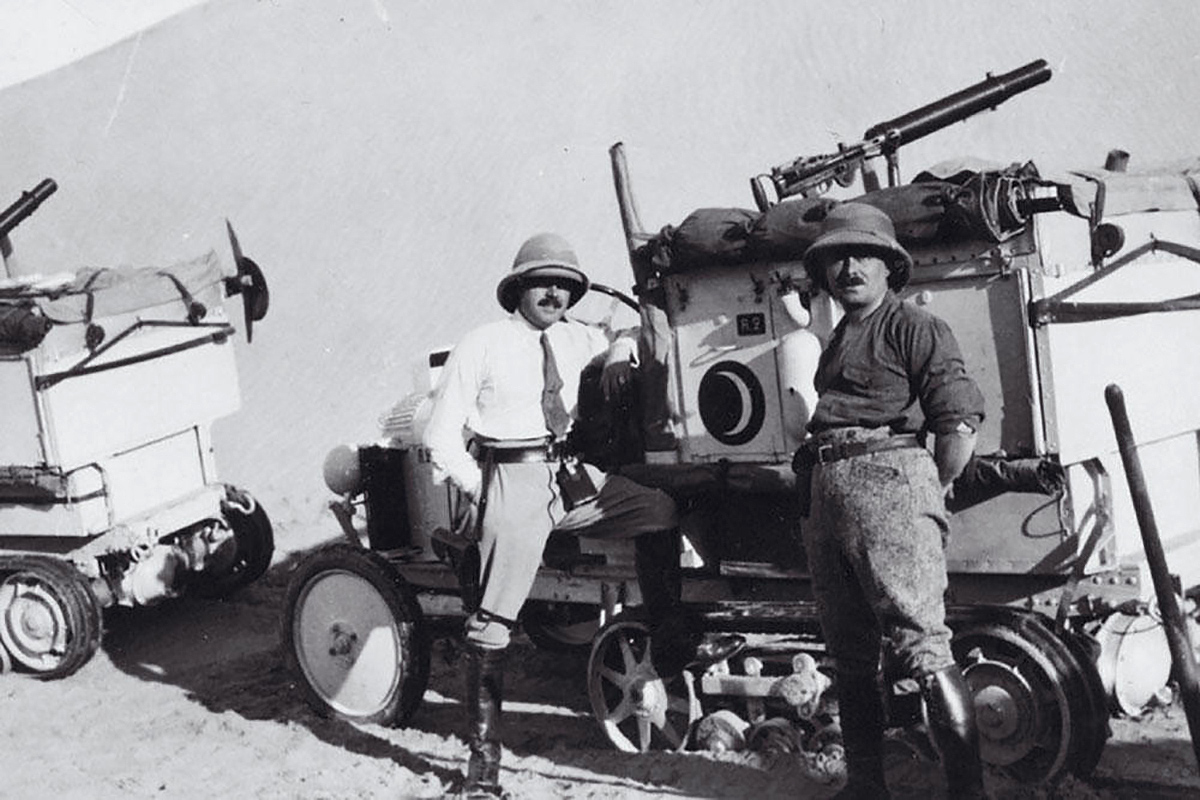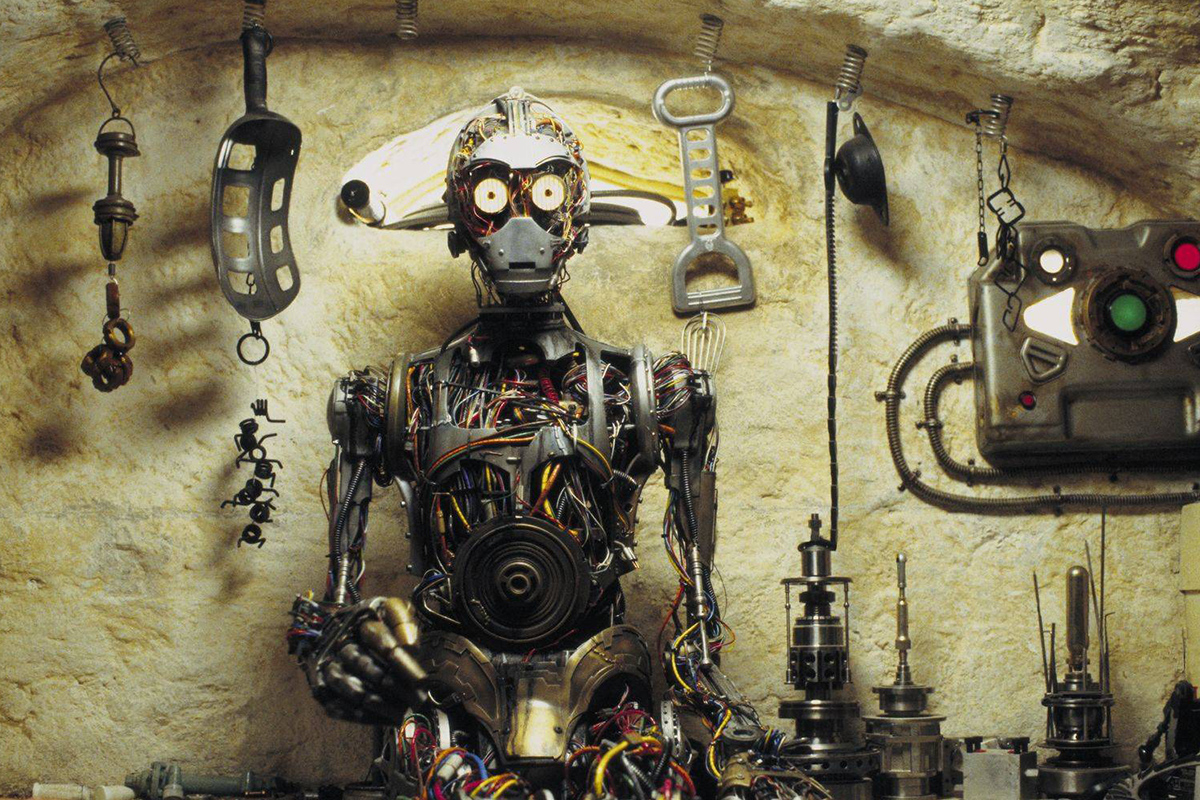Munich: The Edge of War is an enjoyable fiction; viewers must not confuse it for a dramatization of Neville Chamberlain’s betrayal of Czechoslovakia.
The movie is based on the novel by Robert Harris, who also wrote the dieselpunk classic Fatherland (review here). Jeremy Irons is predictably excellent. The costumes and sets are flawless. Scenes were shot in the actual Führerbau in Munich, where the 1938 conference took place.
The film adds a few action scenes to Harris’ plot to make it more thrilling, as well as two meaningful female characters to make the story less male-dominated.
Unfortunately, the one part of Harris’ novel the film downplays is a crucial one: the so-called Oster conspiracy, named after German counterespionage chief Hans Oster, to remove Hitler from power if he had attacked Czechoslovakia.
In the book, one of the two fictional characters, Paul von Hartmann (played by Jannis Niewöhner), is part of the plot, which was the most advanced of its kind in the years before the war. Harris makes clear that if Chamberlain and his French counterpart, Édouard Daladier, had held firm in Munich, and refused Hitler the right to annex the German-speaking Sudetenland, the German Army and security services would have moved against the dictator to prevent all-out war in Europe. Far from giving Britain time to prepare for war, Chamberlain missed an opportunity to prevent war.
In our world, Chamberlain didn’t know the extent of the conspiracy. But to me that seemed the point of Harris’ novel: to make his appeasement look even worse in hindsight. The movie turns this on its head. It gives Chamberlain direct evidence of Hitler’s far-reaching territorial ambitions as well as the conspiracy against him, and still praises the British leader for signing the Sudetenland over to the Germans, which in effect signed Czechoslovakia’s death warrant (its strongest defenses were in the Sudetenland border region) and convinced Hitler he had nothing to fear from the Western democracies.
The film tells viewers Chamberlain bought Britain time to prepare for the Second World War, and to his credit he did expand the Royal Air Force and Territorial (reserve) Army. But these preparations didn’t stop Hitler. They didn’t prevent the Fall of France. It wasn’t until the Battles of El Alamein in 1942 that the British first halted an Axis offensive, and this owed nothing to Chamberlain.
Iron plays Chamberlain as a weary but wise old peacenik. Biographers have described the man as insecure, obstinate, thin-skinned and vain.
Christian Schwochow (who also directed three episodes of The Crown) has made an exciting movie, but anyone who wants to learn the real history of “Munich” should read a book. Harris’, despite being a novel, is not a bad place to start.






2 Comments
Add YoursAn all too topical subject at the moment, when appeasement is once again in fashion. What a difference from just five years ago, when DARKEST HOUR and DUNKIRK were releaded.
This is an interesting take on the book and the film. It’s very different from my interpretation of both. I felt like the book read like a Chamberlin apologist wrote it – sort of like He did this knowing it wasn’t going to be the fix – but would crucially allow England to re-arm and that was his bigger plan and for that – he was willing to look a fool in the history books. England being inadequately ready for war – was a massive undertone of the book – but it that entire plot point was thrown out the window in a single line in the film. To be fair – I honestly can’t remember if in the book he ever sees the info – but I remember after both the book and the movie – my big take away – was – WHAT IS THE POINT OF THIS STORY – since the needle doesn’t move at all. The book was much better – as they always are – because there was real tension and drama in the sequences – the TRAIN. And the pig SS officer that was suspicious etc. Allowed for much more tension. Though I do appreciate that the film developed the German girl character further – and you got a sense of her as a person. But the film also made the German friend character – absolutely intolerable with his child like rage issues – and then inability to KILL “HITLER” after showing all that rage etc…. And I also – thought it was weird how they tried to justify the awful selfish character of his wife – who I remember was cheating on him – but it’s 2022 now – so of course we have to act like – she has “her side of the story” too – instead of just understanding that when your husband works for the PM and are hours away from war. – he can’t take a weekend off to go to the country. No sometimes one person really is more to blame. And that’s ok.